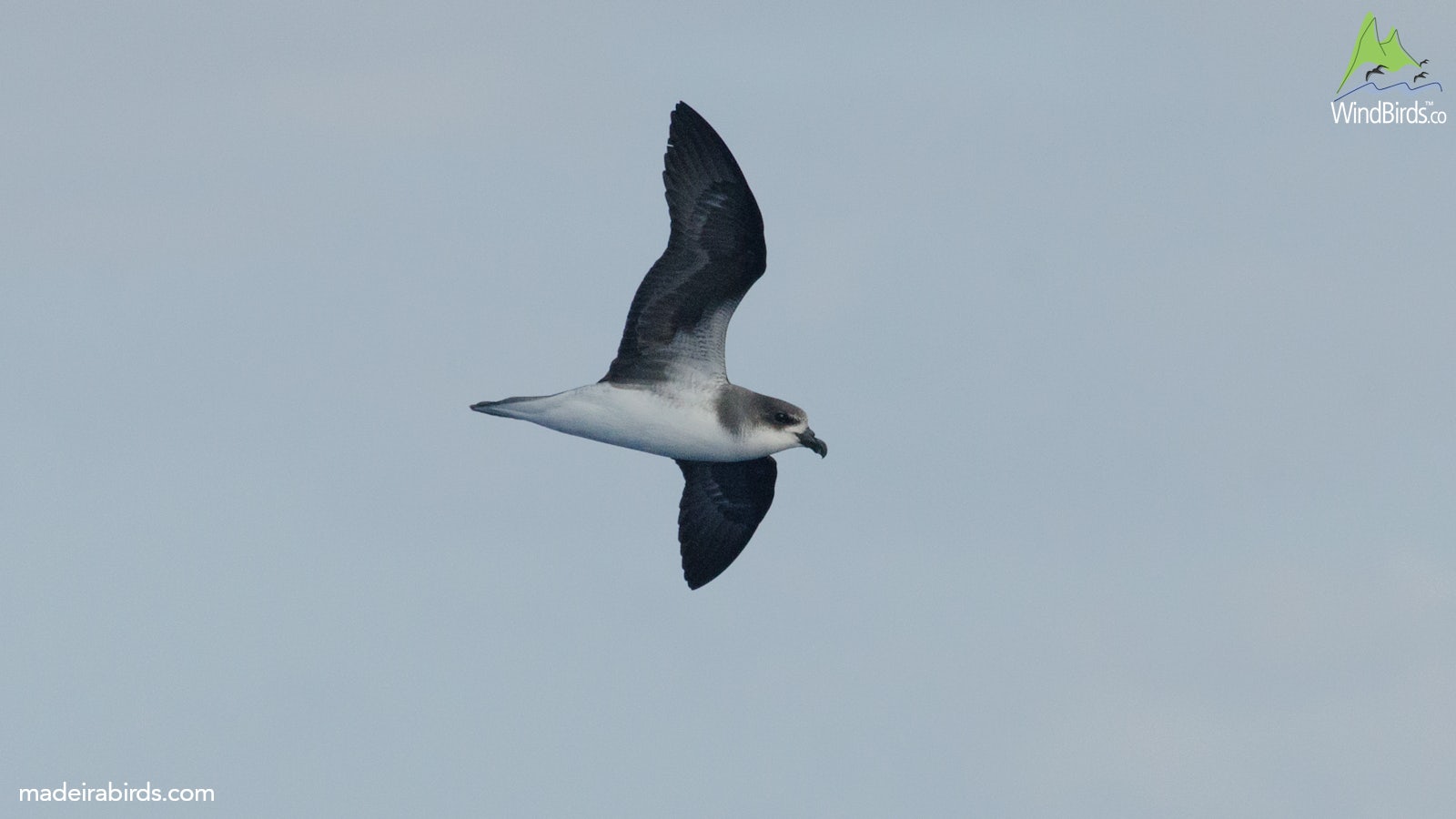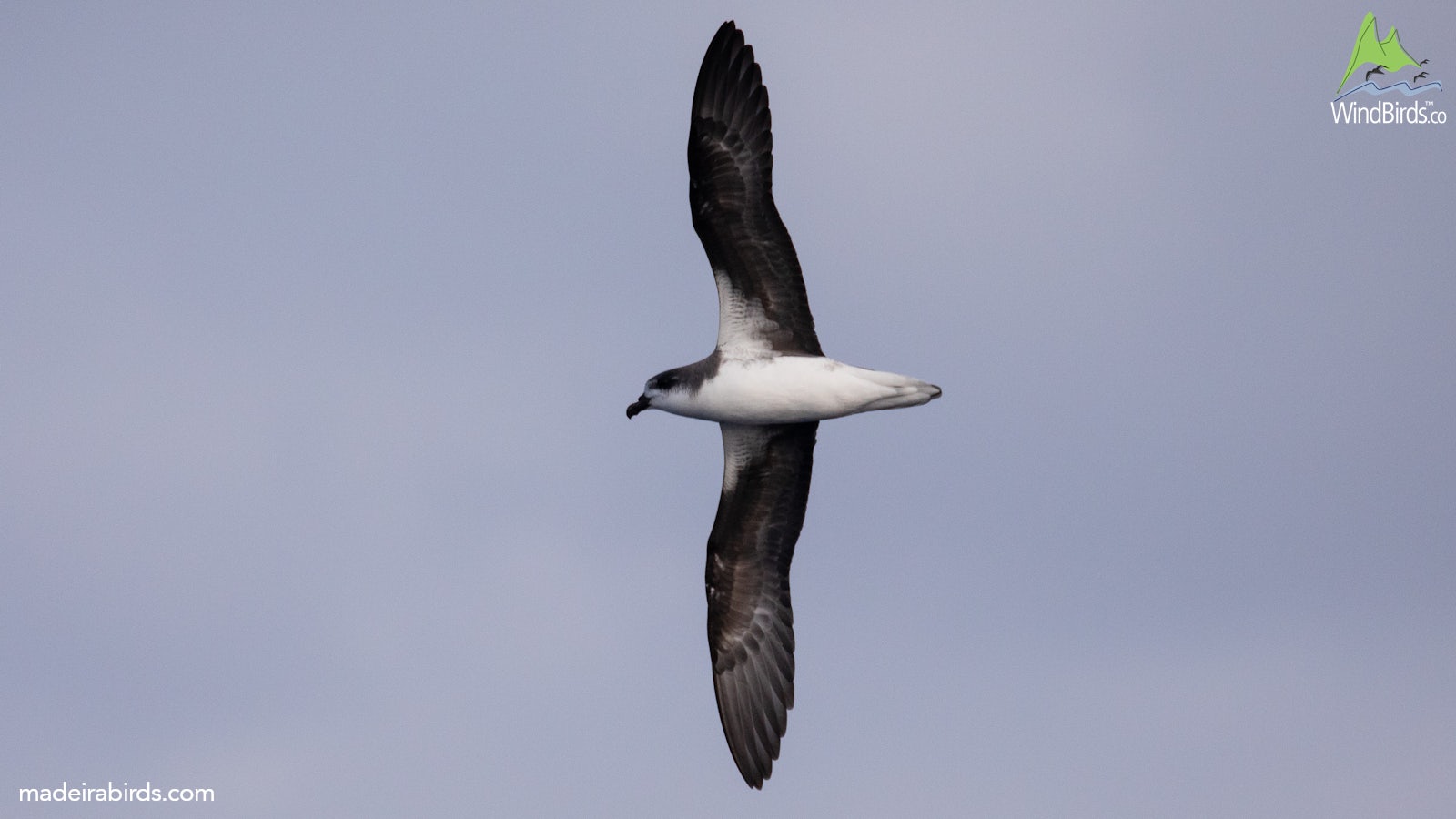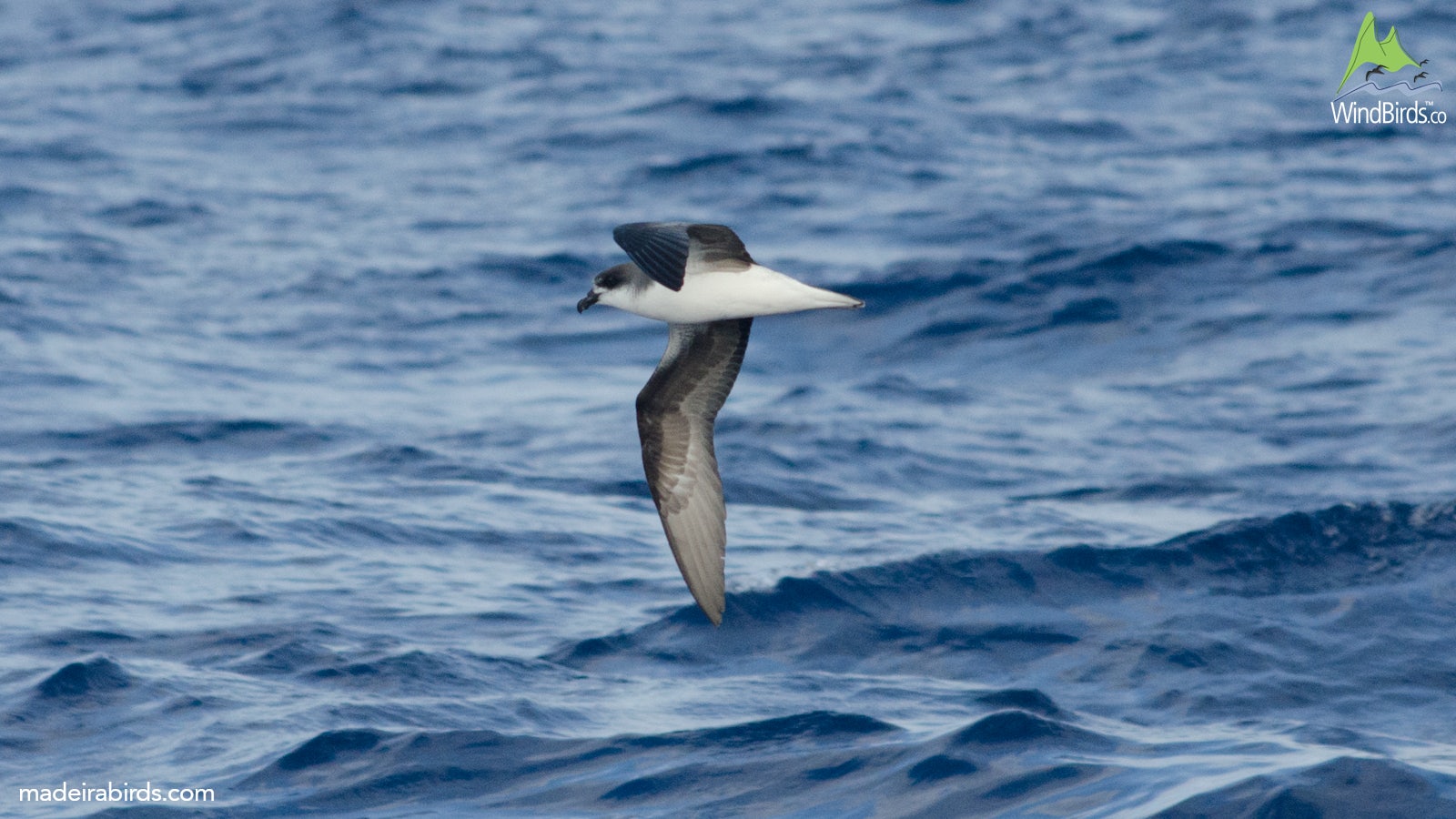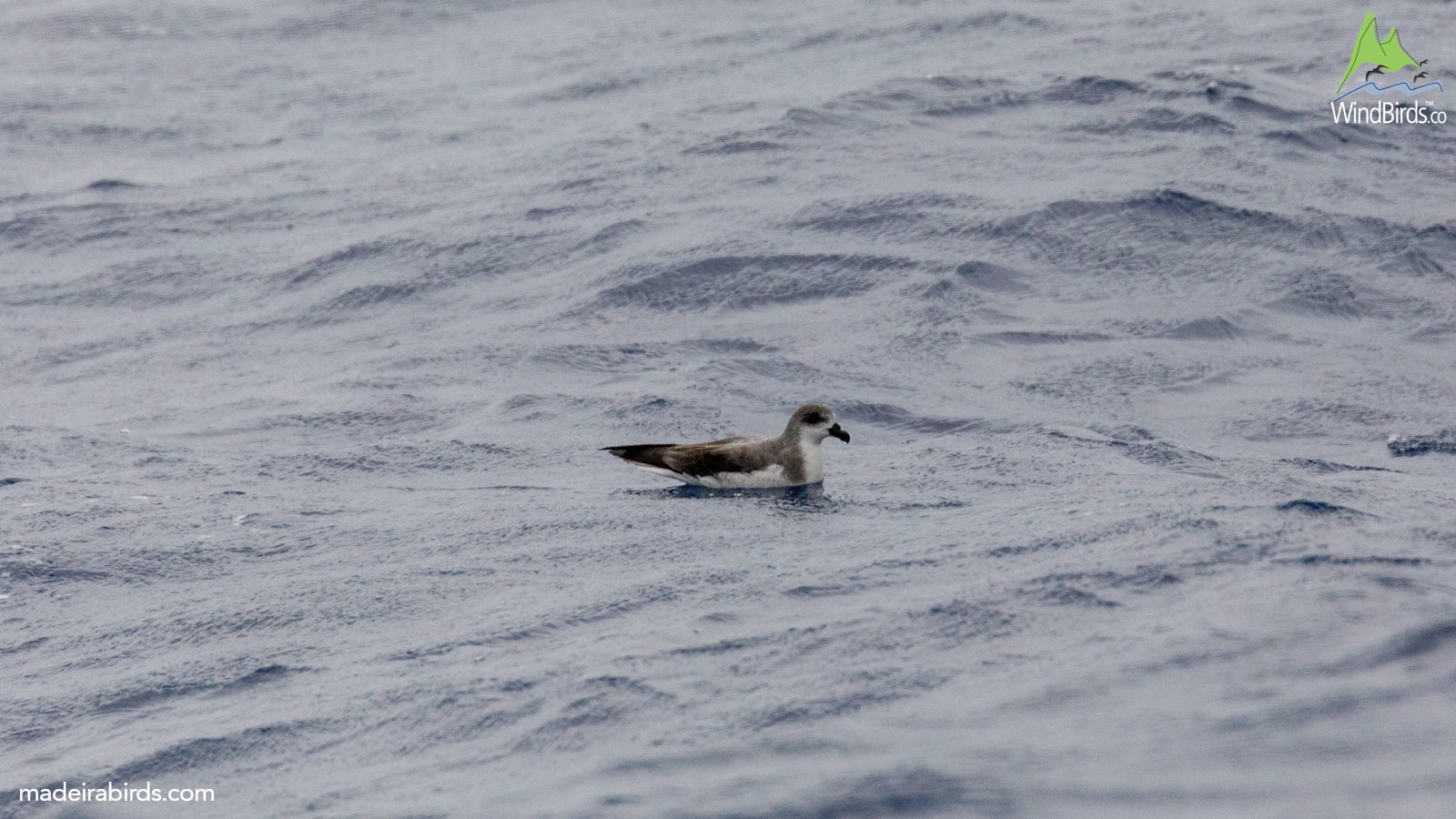Fea's Petrel Pterodroma feae/deserta (Salvadori, 1899)
Order: Procellariiformes Family: Procellariidae Status: Breeding in Madeira

Recommended birdwatching sea trips to watch this seabird
Bird, dolphin and whale watching trip
Zino's Petrel Pelagic Expedition
Fea's/Desertas' Petrel Field ID Keys
Shape & Size
Medium-sized, slightly built gadfly petrel with a relatively heavy bill.

Colour Pattern
Desertas Petrel Pterodroma deserta (once considered Fea's Petrel Pterodroma feae) has dark grey plumage on the upper parts of its body and underwings while the rest of its body is white. On its head, the bird has a white area between its bill (black and robust) and its eyes. The other areas of its head are dark, with the top of the head being dark grey.

Behavior
Commonly flies at high speed in very high (10/40 metres) “Vs” above the sea, rarely beating its wings. There are no clear visible differences between males and females.
Habitat
The Pterodroma deserta is endemic to Madeira where it nests in Bugio islet (one of the Desertas islands) while the Pterodroma feae only breeds in the Cape Verde islands of São Nicolau, Santiago, Fogo and Santo Antão.
Distinction from similar species
Considering P. deserta and P. feae distinct species, it is very difficult to distinguish them.
These might also be easily confused with Zino's Petrels due to its similar characteristics though a close look at Fea's / Desertas Petrels show a bigger and bulkier body with a much heavier bill than Zino's.

Pterodroma deserta Biometrics
Wingspan: 860 - 940 mm - average: 908 mm (Shirihai et al., 2010)
Total length: 330 - 380 mm - average: 361 mm (Shirihai et al., 2010)
Weight: 245 - 428 g - average: 323 g (Shirihai et al., 2010)
Length of bill: 27 - 31 mm - average: 29.06 mm (Zino & Zino, 1986)
Height of bill base: 13 - 16.2 mm - average: 14.65 mm (Zino & Zino, 1986)
Other Bird Facts
Seasonality in Madeira: These seabirds are observed flying around Madeira between mid-May and mid-November.
Breeding: On the Southern plateau of Bugio this seabird normally nests in unused rabbit burrows or ones that it excavates itself where the ground is soft with sufficient soil. It also nests in holes in rocks or in zones with loose stones, the latter habitat being more common in Cape Verde.
Desertas Petrels arrive in Madeira waters by the end of May, lay a single egg in summer (July/August) and the young birds leave the nests by December. In Cape Verde, this species appears to lay its eggs in December/January.
Diet: It feeds on squid, small fish and surface crustaceans
Status
Madeira local status by Correia-Fagundes et al, 2021: Rare breeding bird
Madeira local status by Romano et al, 2010: Rare breeding bird
Madeira local status by Zino et al, 1995: Very rare breeding bird
Conservation status by the IUCN Red List Categories, 2013: Near Threatened ver 3.1
Curiosities
There are some reasons to think that the Cape Verde population of Fea's Petrel may be a separate species and some taxonomic authorities (Avibase, IOU - International Ornithologists’ Union - former IOC) already consider them as 2 different species - Pterodroma deserta and Pterodroma feae - but the data supporting this line of thought is still inconclusive. The described ID differences are small and are expected on island colonies, also the different breeding seasons are understandable when colonies are geographically distinctive.
Name of this species in other languages
Portuguese: Freira do Bugio, Gon-gon
German: Kapverdensturmvogel, Desertassturmvogel
Dutch: Kaapverdische Donsstormvogel, Desertasstormvogel
Swedish: Kap Verdepetrell
Danish: Kap Verde-petrel
Finish: Kapverdenviistäjä
Norwegian: Kappverdepetrell
Spanish: Petrel Gon-gon, Petrel de las Desertas
French: Pétrel gongon, Pétrel des Desertas
Italian: Petrello di Fea, Petrello delle Desertas
Polish: Petrel Wyspowy, Petrel Ubogi
Slovak: Tajfúnnik Kapverdský, Tajfúnnik Letný
Czech: Buřňák kapverdský
English synonyms: Desertas Petrel, Cape Verde Petrel